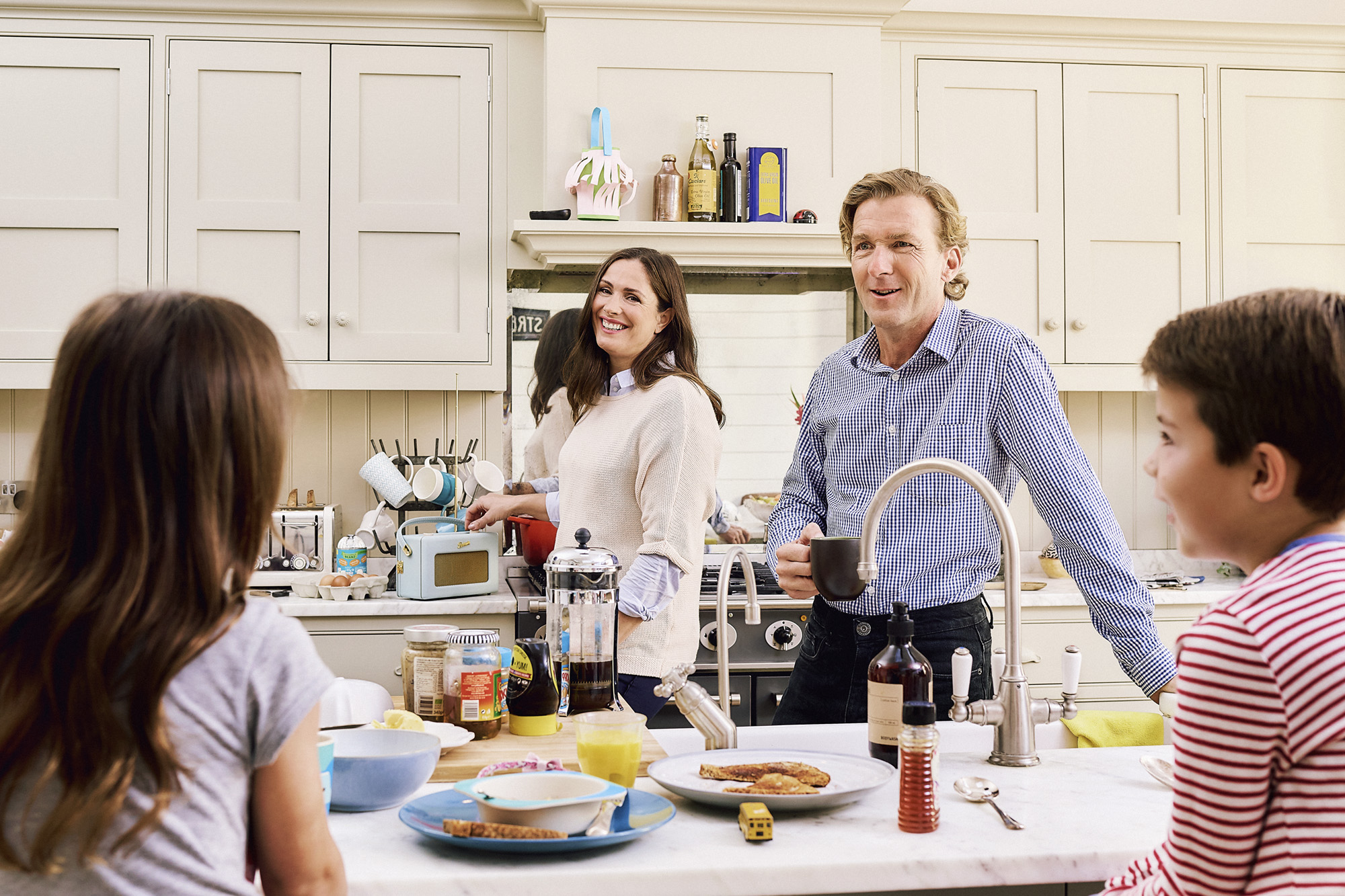
Coronavirus pandemic makes radio stronger than ever
Radio stations are reinventing themselves during the coronavirus pandemic and being rewarded with record online listening figures as a result.
And a number of local commercial and BBC stations across the UK are stepping up their game with extra local content and interactivity with listeners.
Some stations are reporting double-digit increases in online listening in recent weeks.
Global says that there has been a significant increase in connected radio listening, with daily reach up 15% and hours up 9%, between 9-17 March. LBC displayed the most notable growth, with its daily reach growing 43% and listening hours increasing 17%.
Figures for Bauer a week later also show an average daily reach increase of 15%, and average daily hours up 13% week-on-week. The broadcaster also reported a record daily reach for Bauer Radio streaming on Friday 20 March.
Nation Broadcasting, which owns Nation Radio and a network of local stations in Wales as well as stations in England and Scotland, has seen increases across almost every one of its stations of around 40%, rising to 75% in some cases.
DC Thomson, which runs Original FM, Wave FM and Kingdom FM in Scotland, has seen regular increases of more than 20% in listener numbers online.
The Jack FM group has reported similar increases of around 30% in online reach. KMFM which has services across Kent has also seen a rise in its online audience of 36% compared to its usual levels.
Tindle Radio, operating Channel 103 in Jersey and Island FM in Guernsey, has also seen surge in online reach of 25% to 35% in recent weeks, while Dee Radio in Cheshire has reported the number of unique listeners to its online streams doubling over the same period.
Fun Kids has also seen a particularly large increase in online audience following the decision to close schools across the country. Streaming hours for the station are up 80% overall, with some shows has increasing fivefold during the day. Fun Kids has also launched a new daily podcast for children called Stuck at Home, hosted by the station’s presenters Dan, Bex, Conor, Sean and George all from their own houses – as they, too, are stuck at home.
Siobhan Kenny, CEO of Radiocentre, the industry body for commercial radio, said: “As the UK acclimatises to a new world of working from home and enforced isolation, radio proves its strength as a hugely valuable source of information, reassurance, company and, most importantly, fun. As one of the most trusted and accessible forms of media, it is perhaps no surprise that so many are tuning in right now.”
Some of the biggest increases have been especially noted across morning programming – which suggests that people are keeping devices on when they would normally be heading out to work.
These increases come on top of significant growth in online listening over the past year. The most recent RAJAR figures for Q4 2019 showed that online listening was the fastest growing method in the UK, up 33% year-on-year.
Meanwhile, BBC Local Radio, which standardised all programme schedules to protect the workforce and limit footfall into the studios is also going above and beyond to keep communities together.
More than 100,000 people have contacted BBC Local Radio’s coronavirus helpline since it was set up two weeks ago and has seen the biggest response the BBC has ever had to a Local Radio campaign.
The Make a Difference initiative has already helped get essential items to a terminally ill father of three, find a lift to work for an NHS worker whose car had broken down and stopped a man from getting evicted from his home. And Last week was no different:
BBC Essex has been sending out leaflets to listeners who have smartphones or tablets – but can’t use them to FaceTime, Skype or use other video calling to loved ones. They’ve also done on air tutorials.
BBC Radio Shropshire Editor Rose Aston answered the station door to an elderly man in a very agitated state. He kept his distance and shouted ‘I’ve never been so angry’, throwing a used envelope, with scribble on it, and walked off.
He’d written that he was angry and didn‘t have anyone to help, and was running out of food. A reporter called him and talked him through all the help available in his street and locality, and gave him the numbers of volunteers who will do his shopping and pick up his prescriptions. She also listened to his concerns. At the end of her shift (without being asked) she went to the co-op and did a food shop and dropped it off at his house. The man, we now know is Mr Morris, called the evening show sounding much calmer to say how grateful he was.
Radio Humberside helped St Phillips church food bank get hold of a fridge for their donations – with thanks to listener Dave. The team helped Paul find someone to fix his boiler, because he had no hot water, and listener Neil called about his mum who’s in her 80s who needed milk and couldn’t find any milk deliveries in her area. Diane got in touch and passed on her sister’s number who lives nearby and willing to deliver for them. Neil was delighted.
BBC Local Radio also had special shows and broadcasts capturing the appreciation of the nation for the NHS on Thursday evening and continued onto Friday morning breakfast shows.
BBC Radio Bristol did a live interview before 8pm with a young lawyer, her grandfather had just died in hospital that morning – he had coronavirus. She explained she had wanted to still come on air because she had told her grandpa she was going to be on the radio and he had been excited about it. So she wanted thank the NHS for the care they had given him. This was live on Instagram too.
BBC Radio Cambridgeshire crossed to reporter John Devine and his family in the Fenland town of March and they captured the atmosphere. They then crossfaded into John’s own song he’d written to celebrate the NHS – one of his (many) original numbers that he’s penned during self-isolation as a vulnerable person – they received this email from the local hospital:
I wanted to write personally to thank you and your listeners for your support during the current coronavirus outbreak. The ongoing messages of warmth, understanding, and encouragement are very much appreciated by our hard-working staff.
With many thanks for your ongoing support,
Lorraine Szeremeta
Chief Nurse
Cambridge University Hospitals
BBC Radio Manchester went live with reporters in three places, they played Proud by Manchester’s Heather Small – and the station is running an Audio diary with an intensive care nurse output today.
BBC Radio Leicester had a special Coronavirus phone-in in Hindi for their Asian listeners between 7-8pm. At 7.50pm they had two NHS doctors talking about the fantastic work the NHS staff have been doing (one in English, the other in Hindi). Then at 7.58pm the Chauhan family went on air, with five family members were huddled round the phone (as a symbolic representation of all the families across Leicestershire).
BBC Radio Shropshire played a montage of callers to the radio station praising the NHS and care workers up to the 8 o’clock.
BBC Radio Suffolk had just finished the ‘virtual’ High sheriff’s awards and the guests joined in a round of applause, followed by a poem written and performed by a champion slam poet nurse from Suffolk who had written it as a love letter to the NHS.
BBC Radio Newcastle had a montage of tributes over a song called “Thank You whoever you are”. Breakfast then used audio of clapping from across the North East taken from social media and had very emotional reaction from a NE charge nurse.
In Cambridge, the ‘Antidote’ podcast has been launched by ex-BBC Radio Cambridgeshire presenters to help people through coronavirus pandemic. Ronnie Barbour and Paul Stainton record a new edition each day.
Radio Newquay has helped bring listeners together with a Virtual Get Together on the radio. the station asked listeners to open windows, head out in the garden or onto their balconies, whilst observing the social distancing guidance, and turn up their radios.
The Virtual Get Together was hosted by founders Mark Chapple and Sarah Bunt who linked up via Cleanfeed from their respective homes.
Station Manager Mark Chapple said: “Anna tagged us in a post in the Newquay Isolation Community Support Group. The idea was simple, let’s use radio to bring everyone together through the common shared experience of listening to the radio simultaneously.”
And East Devon MP Simon Jupp returned to his old job at Radio Exe to host a one-off show after speaking with Radio Exe’s managing director Paul Nero about the issues facing businesses including independent commercial radio stations.


